
Agatha-winning author Leslie Budewitz
Today, I’m pleased to host Leslie Budewitz for this guest post. Leslie is an attorney, mystery author of two cozy series, and triple Agatha Award winner. For more than 20 years, she and I have been trusted critique partners and good friends.
Leslie offers insightful techniques to deepen emotion in our writing. Welcome, Leslie!
Emotional Research
by Leslie Budewitz
No matter what genre we write, readers come to our books in part for an emotional connection with our characters and the story. One way to give them that is to draw on our own experiences. We’ve all felt deep emotion—rage, betrayal, jealousy—that if pushed to extremes could lead us to do terrible things, planned or unplanned. I’m betting most of you have drawn on your own emotional experiences in your fiction, exploring your personal emotions, perhaps through a free-write, then giving that, or pieces of it, to your characters.
But sometimes characters have experiences we haven’t had. This is when need to call on our research and observational skills, as well as our empathy, to better understand a character’s emotional experiences, what motivates them, and how they will respond in a particular story crisis.
I first delved into this when writing my first published mystery, Death al Dente. When the series began, my main character, Erin Murphy, was a 32-year-old who had lost her father to a hit-and-run accident when she was 17; the crime was unsolved and I planned to solve it over the course of the first three books.
My father died when I was 30. That’s a very different experience. I’d worked on countless personal injury cases as a lawyer, including wrongful death cases, and knew some of what survivors went through. But I needed to know more about the emotion and how it might continue to influence this particular woman
I sat down and wrote by hand about every person I could think of that I knew—well or not well—who’d lost a parent when they were young. Some of my observations were decades old, but it turned out that I knew a lot. I remembered talking on the phone for an hour, back when daytime long distance was expensive, when my best friend from college lost her father at 21. I thought about some of the ways that loss at that age affected her—she’s still my BFF—and gave her a different experience than her older siblings got.
I remembered a conversation with a 35-year-old colleague whose father died when he was 18. “But you were grown,” a friend said, implying that that lessened the impact; “not really,” he replied, and his sadness told me how much he felt had been unjustly taken from him.
I wrote about the high school classmate whose father died the year after we graduated, and whose own husband died in his early 40s, leaving her with a small child, giving her—and me—a dual perspective. I let my focus drift and I wrote about my reaction and that of my high school classmates when a boy in our class was killed in a car accident junior year. Later that same week, a girl a year behind us in our small school lost her mother to wintry roads; the family lived near us and went to the same church. I thought about the baby, not a year old, who never knew his mother, and some poor decisions the oldest girl made that might have turned out differently if not for that tragedy.
Other options: Talk to people who’ve had your character’s experience, if they’re willing, or to people involved with it in other ways. I talked to my husband, who’s a doctor of natural medicine with a general practice and has treated many patients rocked by grief. Talk to your friend who teaches high school or your walking buddy who’s a social worker.
I searched online for guides for teachers and school counselors on dealing with students who lost a parent. You could also read memoir, personal accounts, or YA novels involving that situation.
And from all of that, I was able to see how Erin would have responded, the different ways her older brother and sister responded; how the death affected her relationship with her mother at the time, and how it affects their relationship now. Francesca still wants to protect Erin, who’s 32, and knows she can’t, any more than she could when Erin went off to college that fall. What does that lead Francesca to do—and say—when she sees her daughter investigating murder? Erin was on stage in the local theater rehearsing for the school play when the accident happened; fifteen years later, she still thinks about that every time she walks in the building. And the guilt she feels over having argued with him the last time she saw him doesn’t resolve until she solves the crime. It was just a teenager’s pique, but the more complicated the relationship, the more complicated the emotions and the bigger the potential story impact.
Of course, all losses have ripple effects. In college, Erin was aloof, focused on school and her own grief. She barely noticed a guy who was really into her. She meets him again, 15 years later. How does that history influence their relationship? And the impact on her friendship with her childhood best pal is a big driver of the story as well, because of what the other girl thought she knew and how she responded—and because she’s now a sheriff’s detective in their hometown.
For Erin, I did the emotional research during the first draft. For Bitterroot Lake, my suspense debut coming out later this month, I did the digging during revision, in response to questions from my editor. I thought about people I knew who, from my perspective, appeared to be driven by bitterness and resentment. I read articles online in Psychology Today and blog posts by psychologists. Tip: This is one time when you want to read the comments! People will say the most amazing things when given the freedom.
All that helped me develop what I knew, and gave me specifics on how such a person views the world and the language they use. I was able to imagine more fully what this particular character in this town, in this crisis, might do.
I said write by hand when you mine your memories and connections, and I mean it. Research shows that writing by hand bypasses our internal editors and judges, and gives us more direct access to our feelings.
You know how to research dates and car models and the color of prison jumpsuits. Turn those skills to your characters’ inner lives and you—and your readers—will connect with them more deeply, more fully.
~~~
Leslie Budewitz blends her passion for food, great mysteries, and the Northwest in two cozy mystery series, the Spice Shop mysteries set in Seattle’s Pike Place Market, and the Food Lovers’ Village mysteries, set in NW Montana. She’ll make her suspense debut with BITTERROOT LAKE, written as Alicia Beckman, in April 2021. A three-time Agatha-Award winner (2011, Best Nonfiction; 2013, Best First Novel; 2018, Best Short Story), she is a current board member of Mystery Writers of America and a past president of Sisters in Crime. She lives in NW Montana.
Find her online at www.LeslieBudewitz.com and on Facebook at www.Facebook.com/LeslieBudewitzAuthor
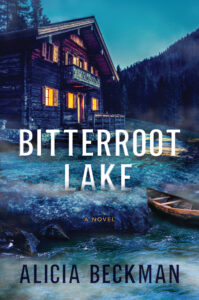 When four women separated by tragedy reunite at a lakeside Montana lodge, murder forces them to confront everything they thought they knew about the terrifying accident that tore them apart, in Agatha Award-winning author Alicia Beckman’s suspense debut.
When four women separated by tragedy reunite at a lakeside Montana lodge, murder forces them to confront everything they thought they knew about the terrifying accident that tore them apart, in Agatha Award-winning author Alicia Beckman’s suspense debut.
More about Bitterroot Lake, including an excerpt and buy links here: https://www.lesliebudewitz.com/bitterroot-lake/
A big thank you to Leslie for sharing her wisdom!
TKZers: Do you have favorite techniques to portray emotions about experiences you haven’t experienced yourself? Please share in the comments section.



 One of the most amazing things about being an author is mingling within the writing community. Writers, as I’m sure you’ll agree, are some of the most generous, supportive, and kind humans on the planet.
One of the most amazing things about being an author is mingling within the writing community. Writers, as I’m sure you’ll agree, are some of the most generous, supportive, and kind humans on the planet. Do you really need to point out a typo in a tweet? We’re all fallible. Smile and move on.
Do you really need to point out a typo in a tweet? We’re all fallible. Smile and move on. I admit, when I first joined Twitter, an automated message to greet my new followers seemed like a good idea. Let me set the record straight—they are never a good idea.
I admit, when I first joined Twitter, an automated message to greet my new followers seemed like a good idea. Let me set the record straight—they are never a good idea.




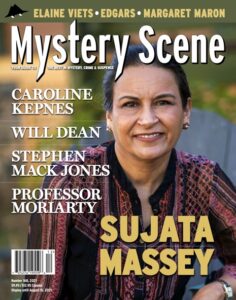

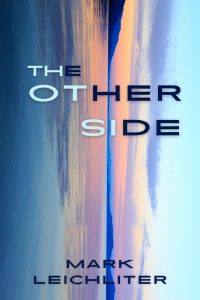




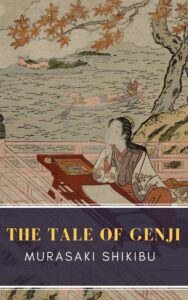
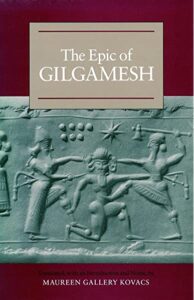
 By Elaine Viets
By Elaine Viets


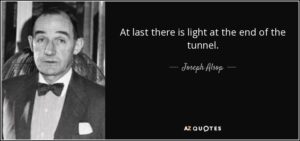





 LESS THAN. In mathematics it means smaller. Four is less than six. But the term is less than satisfactory when it strays in to everyday language. It’s wrong to make people feel “less than.” Less than what?
LESS THAN. In mathematics it means smaller. Four is less than six. But the term is less than satisfactory when it strays in to everyday language. It’s wrong to make people feel “less than.” Less than what?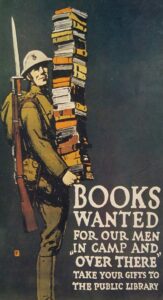 NEW NORMAL. The new normal not only isn’t normal, it’s not even new. Wikipedia, for heaven’s sake, points out that every time we have a major crisis, we dig up that term and dust it off. It seems to have appeared the first time in 1918, right after World War I. Henry A. Wise Wood spelled it out for us: “How shall we pass from war to the new normal with the least jar, in the shortest time? In that respect should the new normal be shaped to differ from the old?”
NEW NORMAL. The new normal not only isn’t normal, it’s not even new. Wikipedia, for heaven’s sake, points out that every time we have a major crisis, we dig up that term and dust it off. It seems to have appeared the first time in 1918, right after World War I. Henry A. Wise Wood spelled it out for us: “How shall we pass from war to the new normal with the least jar, in the shortest time? In that respect should the new normal be shaped to differ from the old?”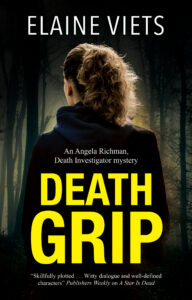 Now out! DEATH GRIP, my new Angela Richman, Death Investigator mystery. Kirkus magazine says, “Viets produces chills with a murder hunt turned on its head.” Buy it here:
Now out! DEATH GRIP, my new Angela Richman, Death Investigator mystery. Kirkus magazine says, “Viets produces chills with a murder hunt turned on its head.” Buy it here: 


 When four women separated by tragedy reunite at a lakeside Montana lodge, murder forces them to confront everything they thought they knew about the terrifying accident that tore them apart, in Agatha Award-winning author Alicia Beckman’s suspense debut.
When four women separated by tragedy reunite at a lakeside Montana lodge, murder forces them to confront everything they thought they knew about the terrifying accident that tore them apart, in Agatha Award-winning author Alicia Beckman’s suspense debut.
